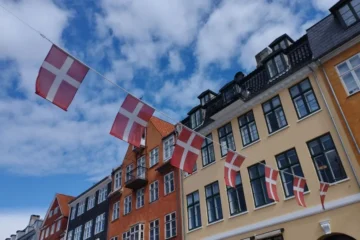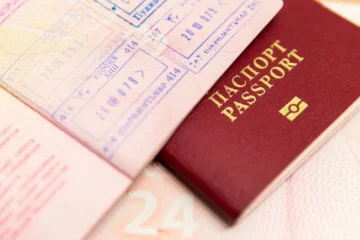Ireland has become a magnet for professionals, students, and families looking for a balanced lifestyle, world-class education, and strong career opportunities. Securing permanent residency in Ireland is a goal for many, as it provides the chance to settle long-term without constantly renewing visas. In this guide, we will explore the complete process of how students, workers, and family members can obtain permanent residency in Ireland, including eligibility rules, required documents, timelines, and common challenges applicants face.
Key Takeaways
Understanding Permanent Residency in Ireland
In Ireland, permanent residency is commonly referred to as Long Term Residency Permission. It allows non-European Union and non-European Economic Area nationals to live and work in the country without restrictions. After maintaining legal residence for a continuous period, usually five years, individuals can apply for this status. For highly skilled professionals on Critical Skills Employment Permits, the path can be slightly shorter.
It is important to distinguish between permanent residency and citizenship. Permanent residency grants long-term living and working rights, while citizenship provides an Irish passport and voting rights. Many choose permanent residency as a stepping stone before applying for full naturalisation.
Eligibility Pathways for Permanent Residency
Ireland offers multiple routes to permanent residency, depending on a person’s current status. Let us break them down:
1. Employment Route
Most applicants qualify through employment. Individuals on Critical Skills Employment Permits or General Employment Permits can apply after five years of legal work. For those holding the Critical Skills permit, time spent working under this scheme is particularly valued as it demonstrates Ireland’s need for skilled workers. Employers often support these applications by confirming continued employment.

2. Study to Work Route
International students cannot directly count study years towards permanent residency. However, graduates who switch from the Third Level Graduate Scheme to an employment permit can start building their residency period from that point. This makes Ireland attractive for students planning to transition into the workforce and eventually apply for long-term residency.
3. Family Reunification
Spouses, civil partners, and dependents of Irish citizens or permanent residents can also apply for long-term residency. In these cases, the relationship needs to be legally recognised, and proof of shared life in Ireland is essential. The time requirement is generally five years, though marriage to an Irish citizen can lead to naturalisation sooner.
4. Business and Investment Options
Although Ireland does not have a direct investor PR programme, entrepreneurs and investors can qualify through the Immigrant Investor Programme or the Start-up Entrepreneur Programme. Time spent under these schemes contributes to the residency requirement.
Also Read: How to Get Permanent Residency in Finland in 2025
Required Documents and Application Steps
The application for long-term residency in Ireland is submitted to the Irish Naturalisation and Immigration Service (INIS). Applicants need to prepare several documents to establish their eligibility:
- A valid passport with copies of previous visas and stamps
- Proof of continuous residence in Ireland (such as utility bills, rental agreements, or tax records)
- An employment contract or business records if applying through work or investment routes
- Marriage or birth certificates for family applicants
- Proof of tax compliance from the Irish Revenue Commissioners
Once submitted, the application is reviewed by INIS. Processing times vary but generally take between six and twelve months. Approval results in a stamp placed in the applicant’s passport, granting permission to remain in Ireland for a long-term period.
Timelines and Key Considerations
For most applicants, five years of residence is the standard requirement. This must be continuous, although short absences for travel or work are acceptable. Those on Critical Skills Employment Permits may qualify more quickly, with some able to apply after just two years.
It is important to remember that not all visas count towards residency. For example, time spent on a student visa does not usually apply unless the individual later transitions into employment. Applicants should carefully track their visa history to avoid misunderstandings.
Common Mistakes to Avoid
Several applicants face rejection due to avoidable errors. Some of the most common include:
- Submitting incomplete or outdated documents
- Assuming student years automatically count towards residency
- Failing to maintain a continuous residence, with long absences from Ireland
- Overlooking tax compliance, which is a crucial requirement
By preparing documents thoroughly and seeking clarification when needed, many of these pitfalls can be avoided.
Benefits of Securing Permanent Residency in Ireland
Long-term residency opens the door to greater stability. Individuals no longer need to worry about renewing short-term permits every year. They can switch jobs freely, pursue business opportunities, and integrate more deeply into Irish society. Families also gain confidence that they can build their lives in one of Europe’s most dynamic countries without constant visa concerns.
Permanent residency also sets the stage for citizenship. After five years of living in Ireland, including time spent as a permanent resident, individuals can apply for naturalisation. This makes PR not only a status of security but also a stepping stone towards becoming an Irish citizen.
Final Thoughts
Ireland offers a clear, structured pathway to permanent residency for workers, students transitioning into employment, families, and investors. While the process requires careful preparation, it rewards applicants with long-term stability and access to one of the most open economies in Europe. By understanding timelines, preparing documents, and avoiding common mistakes, applicants can navigate the system with confidence.
For many, securing permanent residency in Ireland is not just about paperwork. It represents the beginning of a secure and fulfilling chapter of life in a country known for its welcoming culture, thriving job market, and high quality of life.





